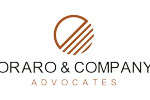Obeid Law Firm gives an overview on the Lebanese dispute resolution and banking systems in times of crisis
Section one: overview on the Lebanese dispute resolution system in times of crisis
A. Litigation
Lebanon has a civil law legal system and, thus, follows the inquisitorial model. The legal process is conducted primarily through written submissions.
The courts in Lebanon are divided into two parts – the judicial courts (those dealing with criminal and civil laws), and the courts dealing with administrative matters.
With the current Covid-19 crisis, court hearings occur in a sporadic manner, depending on whether the country is under total lockdown or not. Indeed, during total lockdown periods, court hearings are suspended and activity of court registries restricted. Some exceptions apply to sentencing hearings, release hearings before criminal courts and urgent matters. In these cases, hearings are held in-person, or remotely depending on the circumstances, and especially in the case of hearings before the criminal courts.
B. Arbitration
Lebanon is considered an arbitration-friendly jurisdiction. The Lebanese legislation on arbitration is modern; it recognises all the principles that are well established in international arbitration. The judiciary in the Lebanese courts is also familiar with and supportive of the law and practice of international arbitration. Moreover, Lebanon is a signatory to the New York Convention with a reservation that the government of Lebanon will apply the convention, on the basis of reciprocity, to the recognition and enforcement of awards made only in the territory of another contracting state. Lebanon also ratified the Washington Convention, among others, on 26 March 2003.
Although arbitration legislation in Lebanon is already well developed, projects to amend it have been discussed in recent times, and that could be useful to revitalize this dispute resolution method in Lebanon.
Even though the Lebanese courts have not been faced yet with issues pertaining to remote hearings in arbitration, this growing method of organising hearings shouldn’t pose any problem under Lebanese law. In fact, the Lebanese Civil Code of Procedure, in its chapter devoted to arbitration, does not include any explicit prohibition regarding remote hearings. Nonetheless, for the purpose of recognition and enforcement of domestic, international and foreign awards, the remote hearings must be organised in a manner that respects the rights of defence (in domestic and international arbitration), as well as in accordance with Lebanese public policy rules (in domestic arbitration) and international public policy rules (in international arbitration).
Section two: insight on the banking crisis in Lebanon
Well before the Covid-19 crisis occured, Lebanon had been enduring a financial crisis since the end of 2019. Among the measures taken by Lebanese banks, they have imposed restrictions on foreign currency funds deposited prior to April 2020. Thus, numerous depositors have been filing requests before the urgent matters judges to compel their respective banks to transfer funds to foreign bank accounts. Since then, urgent matters judges across Lebanon have rendered contrasting decisions in this regard. However, in a decision dated on 11 February 2021, the Court of Appeal of Beirut confirmed that the refusal of a Lebanese bank to carry out an international transfer of funds upon the request of its client constitutes a flagrant unlawful infringement on the rights of the depositor and ordered the bank to comply with the funds transfer request.
The Lebanese legislation on arbitration is modern; it recognises all the principles that are well established in international arbitration.
In this context, banks in Lebanon have taken numerous contested measures implicating their clients’ deposits, leading to a myriad of legal issues opposing both parties which have overflowed the Lebanese courts. In that regard, in order to reduce the judicial workload, which would benefit the judicial system as well as the litigants, ADR methods could be a way for parties who are already in an extremely conflictual environment, to resolve their issues amicably, through mediation. This method could interest parties, especially those looking to maintain long-term contractual relationships, or even because it is often a less costly dispute resolution in comparison with other traditional dispute resolution mechanisms and arbitration – which is an important factor given the economic and financial crisis.
OLF’s practice advises on both conventional and Islamic financial products, and has substantial expertise in the banking industry in Lebanon as well as in handling a full spectrum of financial and general banking matters.
OLF’s lawyers’ industry backgrounds provide them with an important insight into the Lebanese banking sector. This enables the firm to offer added value services to both local and international clients across a range of conventional financial practice areas, including asset finance, leveraged finance, real estate finance and workouts, and projects. OLF also enjoys a strong reputation for its expertise in Islamic finance.
Section three: OLF’s expertise
OLF’s practice teams offer specialist legal advice and provide comprehensive legal services for a variety of contentious and non-contentious matters.
A. Dispute resolution
OLF’s dispute resolution (DR) practice is recognised as the leading DR practice in Lebanon and the Middle East. The firm’s DR team has consistently received accolades from international publications, clients and fellow practitioners worldwide as a leading, first-class litigation and international arbitration practice. Firm members have experience acting as parties’ counsel, arbitrator or expert in complex, high-value arbitrations around the world, in addition to being involved in many of the most significant and high-profile litigation disputes locally. The DR teams are leaders in their respective fields and include lawyers with doctorates in law. Further, the key partners in the firm’s DR practice featured in the International Who’s Who Commercial Arbitration and Litigation Guides, and have been identified amongst 625 counsel and dispute resolution practitioners in 84 jurisdictions ‘who can truly be considered as leaders in their field.’
B. Corporate and commercial
OLF has a strong reputation, not only for the firm’s expertise in dispute resolution, but also for its first-class know-how in both commercial and financial transactions. Over the past decade, it has been actively involved in key transactional matters both in Lebanon and internationally. With a solid track record in corporate and commercial disputes, the firm has extensive knowledge of the broader issues at stake in both mainstream and bespoke corporate, commercial and M&A deals. The firm has been praised as being ‘regularly sought after for its expert advice’ on matters involving ‘insurance, finance and contract negotiations.’











